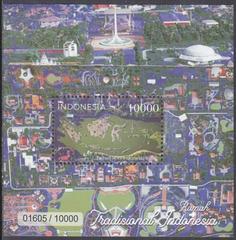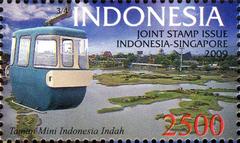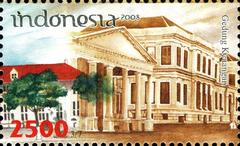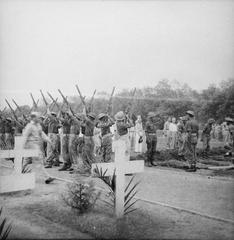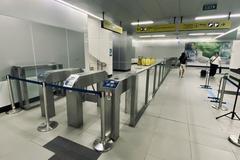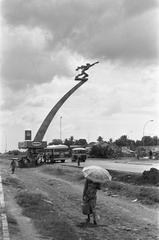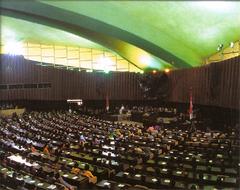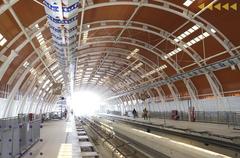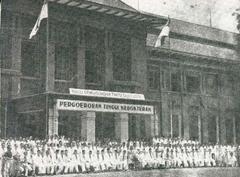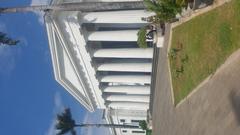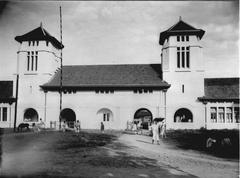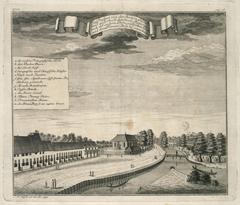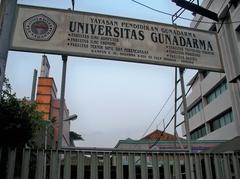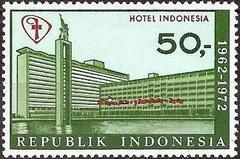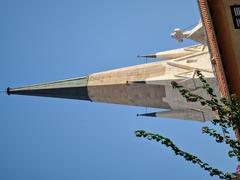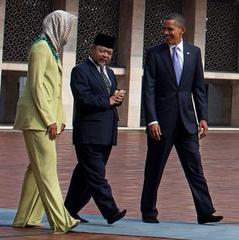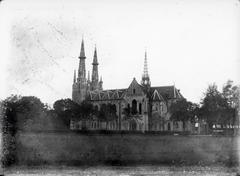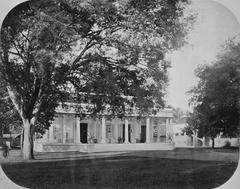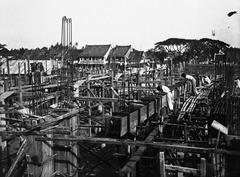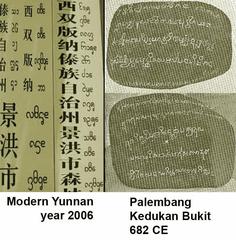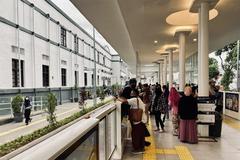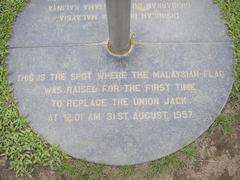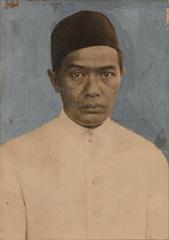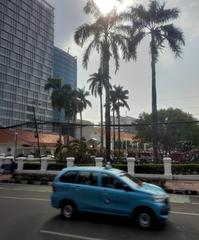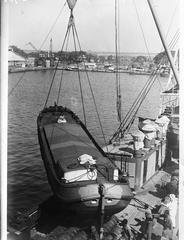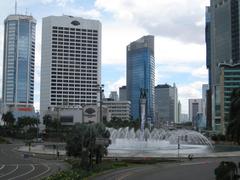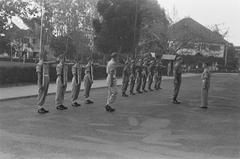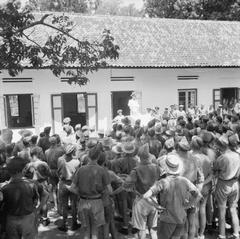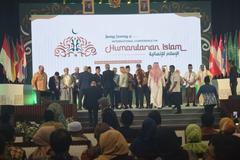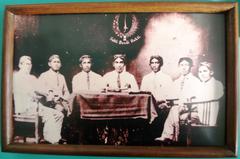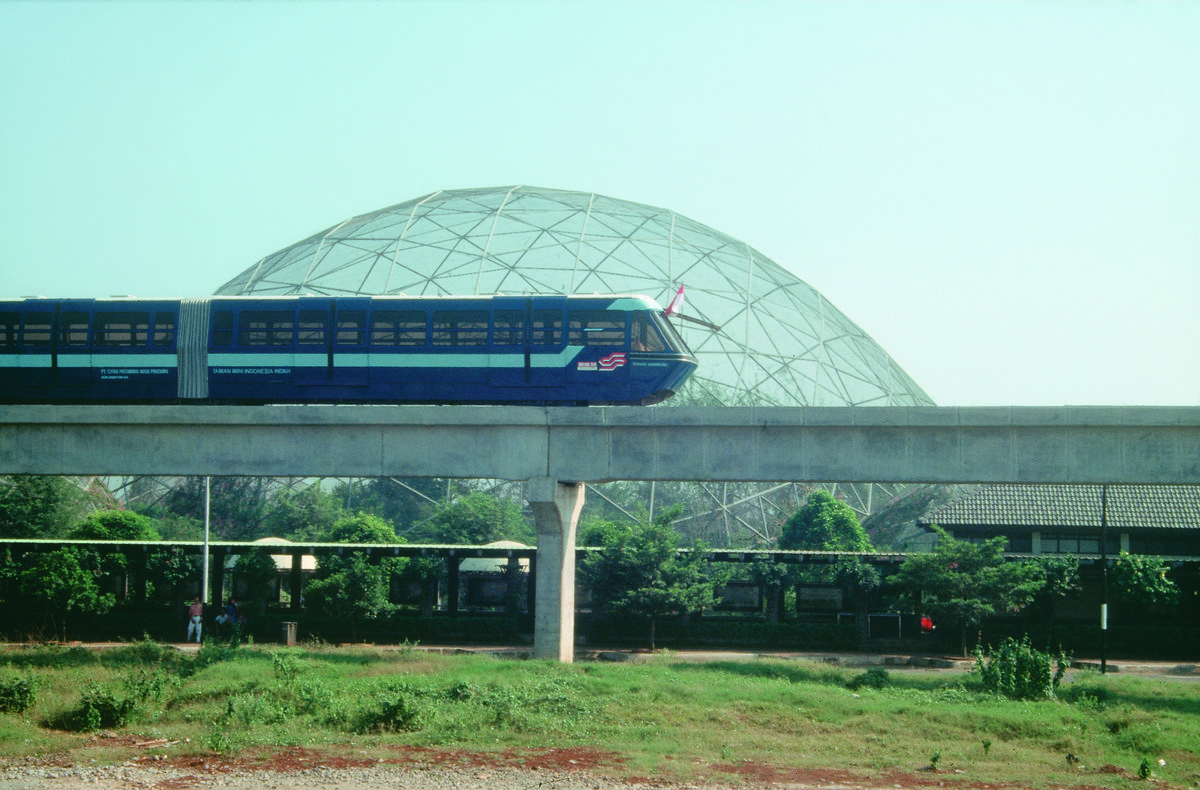
Comprehensive Guide to Visiting Tugu Api Pancasila, Jakarta, Indonesia
Date: 16/07/2024
Introduction
Tugu Api Pancasila, also known as the Pancasila Flame Monument, is one of Jakarta’s most significant historical and cultural landmarks. Inaugurated by President Joko Widodo on November 9, 2021, the monument stands as a powerful commemoration of Indonesia’s enduring spirit of independence and its unwavering commitment to the principles of Pancasila. The term ‘Pancasila’ refers to the foundational philosophical theory of Indonesia, which consists of five core principles: belief in the one and only God, just and civilized humanity, the unity of Indonesia, democracy guided by inner wisdom, and social justice for all Indonesian people (source).
Standing majestically at a height of 45 meters, symbolizing the year of Indonesia’s independence in 1945, the monument features five tall pillars designed in the form of a keris, a traditional Javanese weapon. These pillars represent the five principles of Pancasila, and at their top is a flame-shaped metal structure symbolizing the eternal flame of the Indonesian spirit (source). This guide aims to provide comprehensive information on the monument’s history, symbolism, visitor information, and nearby attractions, ensuring that visitors can fully appreciate and enjoy their experience at Tugu Api Pancasila.
Table of Contents
- Introduction
- Historical Background
- Symbolism and Design
- Inauguration and Presidential Remarks
- Cultural and National Significance
- Architectural and Artistic Elements
- Location and Accessibility
- Visitor Information
- Visitor Experience
- Nearby Attractions
- Tips for Visitors
- Frequently Asked Questions
- Conclusion
- Sources
Historical Background
Tugu Api Pancasila was inaugurated at the Lapangan Bela Negara, Ministry of Defense, Jakarta. The monument commemorates the spirit of Indonesian independence and the nation’s dedication to Pancasila, the foundational philosophical theory of Indonesia (source).
Symbolism and Design
Standing at a height of 45 meters, symbolizing the year of Indonesia’s independence, 1945, Tugu Api Pancasila features five tall pillars designed in the form of a keris, a traditional Javanese weapon. These pillars represent the five principles of Pancasila:
- Belief in the One and Only God
- Just and Civilized Humanity
- The Unity of Indonesia
- Democracy Guided by the Inner Wisdom in the Unanimity Arising Out of Deliberations Amongst Representatives
- Social Justice for the Whole of the People of Indonesia
At the top is a flame-shaped metal structure, symbolizing the eternal flame of the Indonesian spirit (source).
Inauguration and Presidential Remarks
During the inauguration ceremony, President Joko Widodo emphasized the importance of the monument as a reminder of the nation’s enduring spirit and commitment to Pancasila. Quoting Indonesia’s first president, Sukarno, he said, “Warisi apinya, jangan abunya” (Inherit the flame, not the ashes), highlighting the need to carry forward the spirit of independence and national unity (source).
Cultural and National Significance
The Tugu Api Pancasila is more than just a monument; it symbolizes the nation’s resilience, hope, courage, and passion for continuous development. It serves as a reminder of the sacrifices made by the founding fathers and the ongoing efforts to build a sovereign, just, and prosperous Indonesia based on the principles of Pancasila and the 1945 Constitution (source).
Architectural and Artistic Elements
The monument’s design incorporates elements of traditional Indonesian art and culture. The keris-shaped pillars symbolize the strength and unity of the Indonesian people, while the flame represents the nation’s undying spirit and commitment to progress (source).
Location and Accessibility
Tugu Api Pancasila is located at the Ministry of Defense in Jakarta, making it easily accessible to both locals and tourists. Situated near other significant landmarks such as the National Monument (Monas), the National Museum, and the Istiqlal Mosque, it is a convenient stop for those exploring Jakarta’s historical and cultural sites (source).
Visitor Information
- Visiting Hours: The monument is open to visitors daily from 8 AM to 6 PM.
- Tickets: Entry to Tugu Api Pancasila is free of charge.
- Special Events and Tours: Guided tours and special events are occasionally held at the monument. Check the Ministry of Defense website for the latest updates.
Visitor Experience
Visitors to Tugu Api Pancasila can expect a profound and reflective experience. The monument’s towering presence and symbolic design offer a powerful reminder of Indonesia’s journey towards independence and its ongoing commitment to national unity and development. The surrounding area is well-maintained, providing a serene environment for visitors to appreciate the monument and its significance.
Nearby Attractions
In addition to Tugu Api Pancasila, visitors can explore several other nearby attractions that offer insights into Indonesia’s rich history and culture. These include:
- National Monument (Monas): A towering symbol of Indonesia’s independence, offering panoramic views of Jakarta from its observation deck (source).
- National Museum: The oldest and largest museum in Indonesia, housing over 140,000 artifacts from various fields such as archaeology, ethnography, and history (source).
- Istiqlal Mosque: The largest mosque in Southeast Asia, symbolizing religious tolerance and harmony in Indonesia (source).
- Jakarta Cathedral: A beautiful example of neo-Gothic architecture, located next to the Istiqlal Mosque (source).
Tips for Visitors
To make the most of your visit to Tugu Api Pancasila, consider the following tips:
- Best Time to Visit: The monument is open year-round, but the best time to visit is during the dry season from May to September. This period offers pleasant weather, ideal for sightseeing and photography (source).
- Accessibility: The monument is wheelchair accessible, ensuring that all visitors can enjoy the site comfortably (source).
- Nearby Dining Options: Several local food stalls and restaurants offer a variety of Indonesian and international cuisine (source).
- Transport Options: Visitors can reach the monument using public buses, taxis, bike rentals, and ride-hailing services like Grab (source).
Frequently Asked Questions
What are the visiting hours for Tugu Api Pancasila? The monument is open to visitors daily from 8 AM to 6 PM.
How much are the tickets to visit Tugu Api Pancasila? Entry to Tugu Api Pancasila is free of charge.
What are the best nearby attractions in Jakarta? Nearby attractions include the National Monument (Monas), National Museum, Istiqlal Mosque, and Jakarta Cathedral.
Conclusion
Tugu Api Pancasila stands as a testament to Indonesia’s enduring spirit and commitment to the principles of Pancasila. Its historical significance, symbolic design, and central location make it a must-visit landmark for anyone exploring Jakarta. Whether you are a history enthusiast, a culture lover, or simply a curious traveler, a visit to Tugu Api Pancasila offers a profound and enriching experience.
Call to Action
For more information on Jakarta’s historical sites and travel tips, download our mobile app Audiala, check out our other related posts, or follow us on social media for the latest updates.

